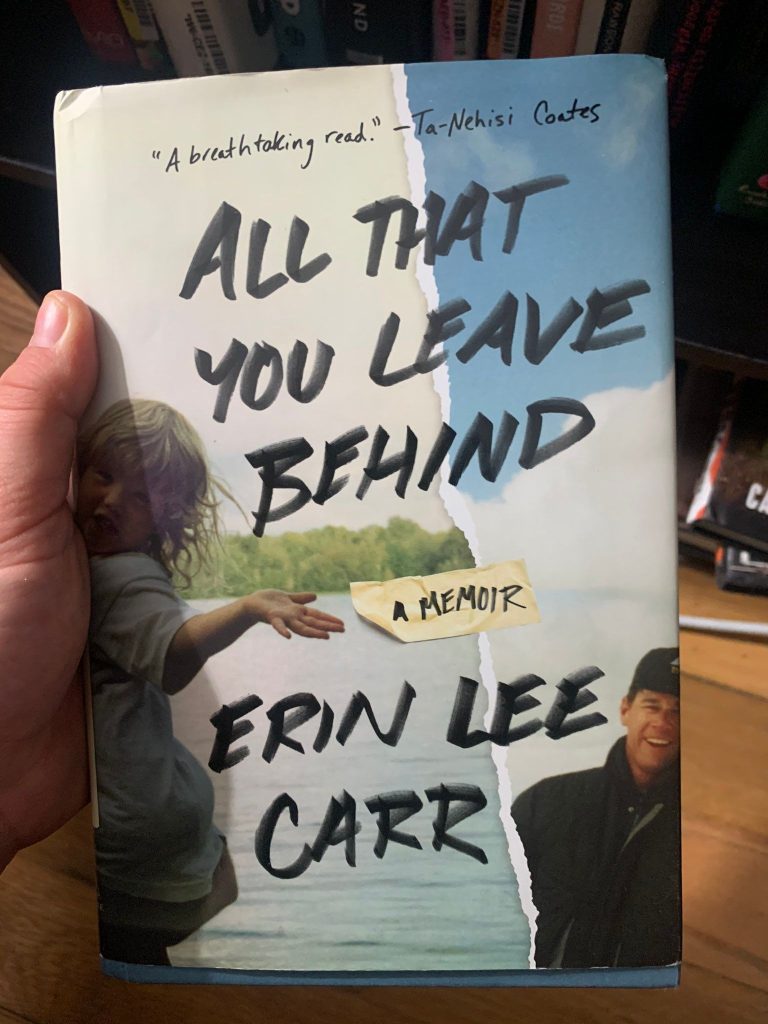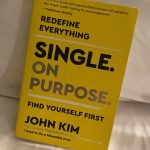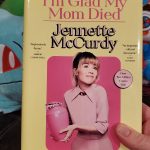Erin Lee Carr’s “All That You Leave Behind” is a brutally honest memoir that tugs right at your emotions. It’s the story of a daughter, a famous journalist dad (I think a bit witty and troubled), and their complicated relationship. Erin talks about the pressure of living up to her dad’s legacy, her own battles, and the path they eventually take to understand each other better. It’s a somewhat messy path that made me re-think my own family drama.
Here are six lessons that I found particularly moving and worth sharing:
1: You can learn from your parents, even if they are not perfect.
Erin Lee Carr had a complicated relationship with her father, who was a recovering addict, a bestselling author, and a mentor to many. She admired his journalistic integrity, his hard work, and his wisdom, but she also resented his absence, his criticism, and his expectations. She writes, “He was my everything, and he was also a lot”. She learned to appreciate his flaws and strengths, and to see him as a human being, not a hero. She also learned from his advice, his mistakes, and his legacy, and applied them to her own career and life choices.
2: You can overcome your addictions, but you have to work on them every day.
Erin Lee Carr struggled with alcoholism, following in her father’s footsteps. She reports, “I drank because I was sad, I drank because I was happy, I drank because I was bored, I drank because I was stressed”. She realized that she had a problem, and that she needed help. She joined Alcoholics Anonymous, and followed the 12-step program. She learned on the way that sobriety (as well as any other addiction) is a lifelong journey and that she had to be honest, accountable, and vigilant.
3: You can find your passion, but you have to work hard to pursue it.
Erin Lee Carr discovered her passion for documentary filmmaking and decided to make it her career. “I wanted to tell stories that mattered, stories that exposed injustice, stories that made people feel something”. She faced many challenges and rejections, but she did not give up. She worked hard to improve her skills, to pitch her ideas, and to produce her films. She also sought her father’s guidance, feedback, and connections, who helped her navigate the industry and the media. “He taught me how to hustle. He taught me how to be bold,” she noted. Her story shows that passion is not enough and that one has to work hard to achieve his goals.
4: You can build meaningful relationships, but you have to communicate well to maintain them.
Erin Lee Carr had many relationships in her life, such as her family, her friends, her colleagues, and her romantic partners. Erin documents how she wanted to love and be loved, to connect and be connected, to belong and be accepted. She soon realized that relationships require communication, and that communication is not always easy. In her words, “Communication is hard. It involves listening, speaking, understanding, expressing, compromising, and respecting”. This awareness helped her to communicate better with people and her father, who taught her how to write, how to talk, and how to listen.
5: To cope with your grief, you have to face it and process it.
Erin Lee Carr was devastated by her father’s sudden death, which left a huge void in her life. He was her anchor, compass, her rock but he was gone, so she was lost”. She experienced many emotions; shock, denial, anger, sadness, and guilt. Erin acknowledged that “Grief is messy. It is unpredictable, irrational, and overwhelming… Grief is necessary. It is the way we heal, the way we honor, the way we remember”. She learned to cope with her grief by writing, reading, and by simply living.
6: On the journey of honouring a legacy, don’t forget your unique identity.
Erin Lee Carr was proud of her father, and his legacy as a journalist, an author, and a father. In her eyes, he was a legend, a giant, a force. He was loved, respected, and admired. She wanted to honor his legacy, and to continue his work. He left really big shoes to walk in. But while Erin learned to honor his legacy, she also tried to create her own identity. And this is what I found most profound about Erin. She writes, “I am not him. I am me. I have my own voice, my own vision, my own values”. She settled for honoring his legacy by sharing his story, and by living his values.
These are some of the lessons I learned from this book, and I hope they inspire you as much as they inspired me. I recommend this book to anyone who wants to embark on a journey of finding his/her own way in this weird, wonderful mess that is life. Grab some tissues, this one’s a yo-yo.
BUY BOOK HERE: AMAZON


